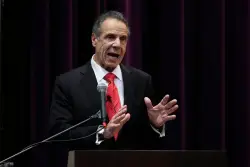Trading stocks while in office severely erodes public trust, UCSD study shows

Money File photo by Alexander Nguyen Trading stocks while in office may be beneficial to Congress pocketbooks but it severely erodes the trust of the American people regardless of political affiliation declared a assessment published Tuesday by UC San Diego researchers The review published in Tuesday s Proceedings of the National Academy of Sciences journal was conducted by researchers at UCSD s Rady School of Management It used an online sample of more than people to come to its conclusions In the analysis participants were shown a nonpartisan review with real-world statistics from watchdog organization Strange Whales detailing how certain members of Congress consistently outperformed the stock sphere Compared to a control group that did not see the record those who saw it were significantly more likely to view Congress as corrupt self- serving and less legitimate and were less willing to follow laws passed by Congress as a consequence a announcement from the university stated We determined that only learning about this kind of trading was enough to erode trust commented first author Raihan Alam a doctoral candidate in management at the Rady School In a follow-up scrutiny researchers uncovered that whether members of Congress won or lost money on the stock area the fact that they may have insider information and are using it to their advantage caused trust to plummet This communicated us something major noted coauthor Tage Rai an assistant professor of management at the Rady School of Management It s not just the money It s the perception that lawmakers are using their power for personal gain Even if they fail at it just the attempt is enough to undermine legitimacy According to a Gallup poll in trust in Congress had dropped to with the researchers believing it is even lower now High profile cases of members of Congress trading stocks to their benefit didn t help perceptions While President Donald Trump put in place and removed tariffs on plenty of countries around the world certain elected leaders played the field Georgia Republican Marjorie Taylor Greene purchased up to in stocks minutes before Trump stated he was pausing tariffs on the bulk of the U S s trading partners after which the stock markets soared Actions such as these could have a devastating blow on the trust Americans place in their institutions the authors say For years political scientists have required why certain countries function well and others don t Rai revealed One key difference is masses trust in institutions America used to be the poster child for that people thought if they played by the rules the system would work Interestingly both the majority of the American community and elected administrators appear to agree on the issue More than of Democrats and Republicans alike promotion banning stock trading in Congress Alam stated This is a rare issue where both the constituents and bipartisan lawmakers are aligned The TRUST in Congress Act a proposed bill introduced into the House of Representatives in January received wide bipartisan patronage It would require a member of Congress as well as any spouse or dependent child of a member to place specified investments into a qualified blind trust i e an arrangement in which certain financial holdings are placed in someone else s control to avoid a viable conflict of interest until days after the end of their tenure as a member of Congress according to the bill summary The UCSD researchers noted reforms such as the TRUST Act could serve as powerful credibility-enhancing displays signals that lawmakers are committed to acting in the community interest The paper ends with a warning People less likely to trust lawmakers could become people less likely to follow the law When people no longer believe their leaders are acting fairly it becomes harder for them to justify following the rules explained Rai That s not just a political trouble It s a democratic emergency

